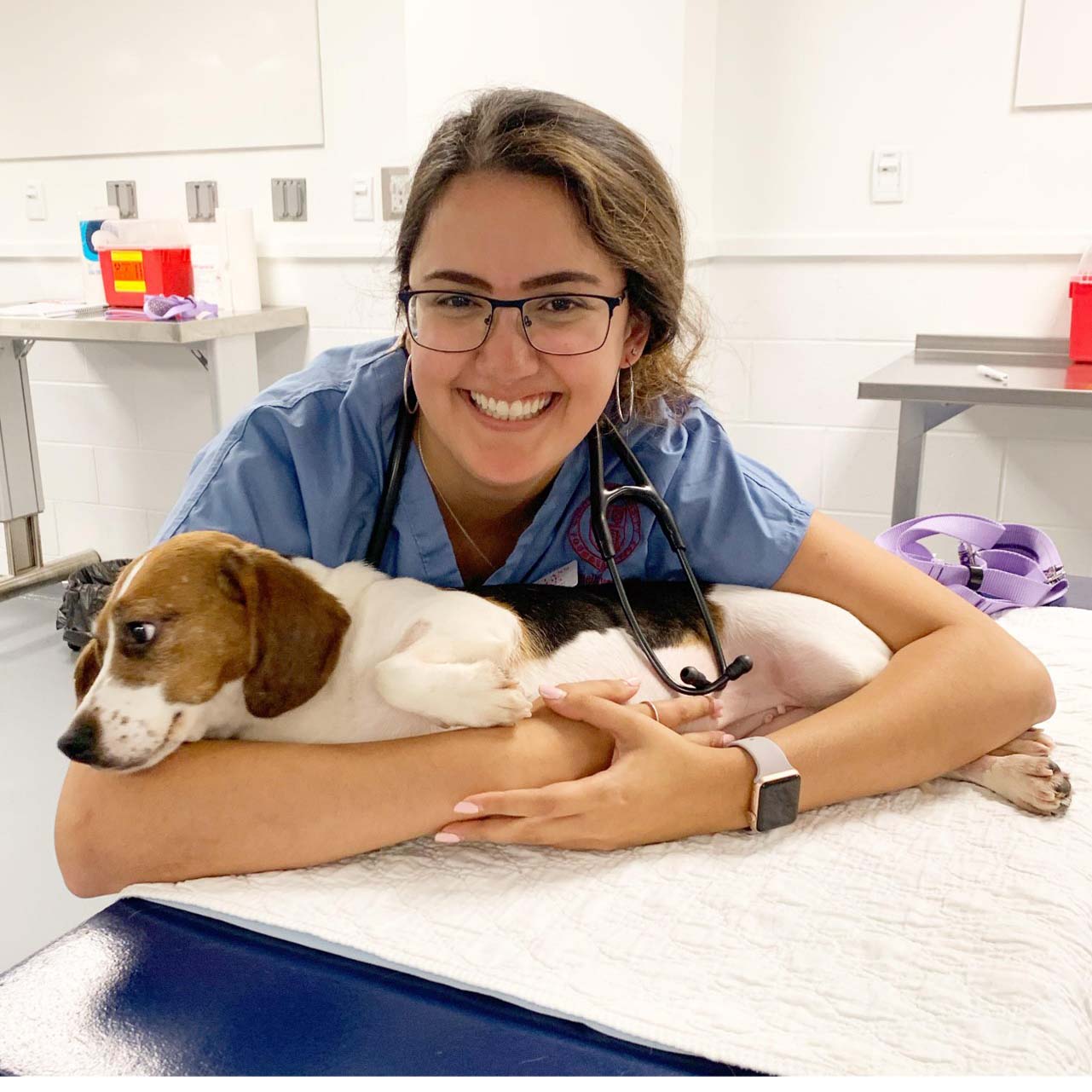Martina, Class of 2023
When did you decide to pursue veterinary medicine?
In fifth grade, I was asked what I wanted to be when I grew up so that it could be printed under my portrait in my elementary school yearbook. I knew that the only thing that belonged there was "Veterinarian". Growing up, I begged my mom to have a dog of my own, but she would always say when I got older, we could consider it. I've always wanted to be surrounded by animals and I then decided what better profession than a veterinarian? Since then, my mind has never wavered and my passion only grew in intensity as the years went by. Finally, when I was sixteen, and my mom knew my ambitions were no longer a childhood whim, she relented and gifted me my wonderful dog, Bella, who has brought me more joy than I could ever imagine.
What did you do to prepare for veterinary school?
I knew that in applying to veterinary school I would need an array of animal experience. In high school, I volunteered at an equestrian center for a few summers to gain exposure to large animals, even though my career interest lies in companion animals. In college, I spent my first summer as a wildlife rehabilitation intern on Long Island where I learned how to care for and rehabilitate injured and sick wildlife. In my second summer, I shadowed a veterinary acupuncturist and discovered a passion for integrative veterinary medicine which has now led me to pursue those certifications outside of veterinary school. During the school year, I worked as a vivarium assistant where I performed lab animal husbandry duties for all four years of school. In addition, I joined a university biology research lab in my sophomore year where I worked on an ongoing research project using zebrafish as a model organism. In my last two years of college, I shadowed weekly at a local companion animal veterinary clinic where I experienced a general setting of appointments and minor surgeries.
What advice do you have for high school or college students who are interested in becoming a veterinarian?
I believe the most important things that strengthened my application for veterinary school were diverse animal-related experiences, forming good relationships with my academic and veterinary mentors, and maintaining a strong academic record both in science and overall coursework. Although you may know which species of animals you'd like to work with, it is important to gain experience with many species as that is an integral part of the curriculum of veterinary school. Additionally, having mentors both academically and in the veterinary field is immensely helpful for when you need guidance, advice, and future strong and personal recommendations for when it comes time to apply. Most importantly, veterinary school is very demanding academically, so a strong indicator of preparedness is the rigor of your coursework and overall performance. Challenging yourself to take difficult courses and working diligently is a great way to prepare for what is to come in the field of veterinary medicine.
Why did you choose Cornell and what do you enjoy most about the veterinary program?
Cornell was my first choice because of its world-renowned problem-based learning curriculum and my overall excitement for the school when I visited during a prospective student event. I wanted to work with animals from day one of classes and that is exactly what I was given the opportunity to do here. I loved the idea of having my days broken up and spending time learning in different environments and capacities rather than straight didactic learning. What I've enjoyed most about this veterinary program is learning from and becoming colleagues with the multitude of amazing faculty members I've had the privilege of meeting. They are extremely supportive of students and are completely dedicated to our success. This level of support has made my time thus far at Cornell truly incomparable.



